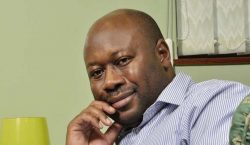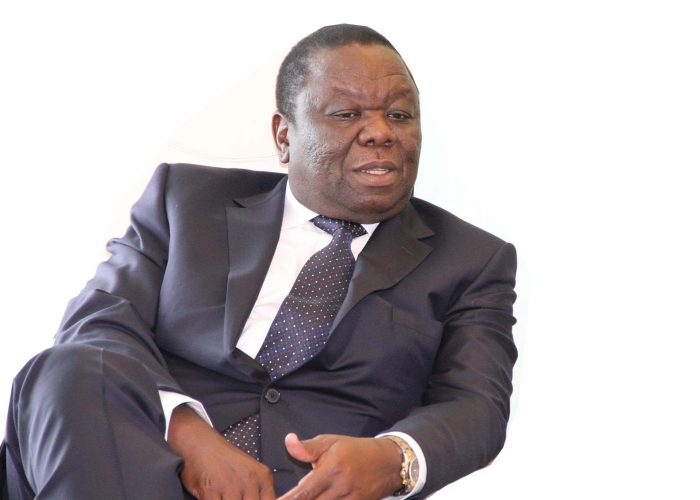


 BY approaching the Constitutional Court and the Southern African Development Comm-unity (SADC) seeking to overturn ZANU-PF’s victory in the July 31 election, Movement for Democratic Change (MDC-T) leader Morgan Tsvangirai has played his last card, which might make or break his political career.Outgoing Prime Minister Tsvangirai suffered a crushing loss in the July 31 polls, his worst defeat since he formed the MDC in 1999.
BY approaching the Constitutional Court and the Southern African Development Comm-unity (SADC) seeking to overturn ZANU-PF’s victory in the July 31 election, Movement for Democratic Change (MDC-T) leader Morgan Tsvangirai has played his last card, which might make or break his political career.Outgoing Prime Minister Tsvangirai suffered a crushing loss in the July 31 polls, his worst defeat since he formed the MDC in 1999.
He is now left with a few options to stop a resurgent ZANU-PF from forming the next government whose immediate task would be to restore confidence in the country’s economy.
Following his shock loss to ZANU-PF, which also exposed Dumiso Dabengwa’s ZAPU and Welshman Ncube’s MDC as mere pretenders to the throne, Tsvangirai is desperate to salvage his political life through court and diplomatic means.
He has since approached SADC, one of the the guarantors of a power-sharing arrangement that enabled him to share executive power with his nemesis, President Robert Mugabe in attempts to force a re-run of the controversial poll.
The former trade unionist, who is also in the firing line within his own party, has since filed a court challenge in the Constitutional Court on grounds that the poll was rigged.
While his court challenge has had the effect of delaying the inauguration of the ZANU-PF leader to allow the judicial process to run its full course, analysts say the odds were heavily stacked against the MDC-T leader.
They said both his petition to SADC and the court challenge were unlikely to find takers due to the fact that most of the regional grouping’s leaders had congratulated President Mugabe, despite the MDC-T disputing the poll outcome.
South African President Jacob Zuma, the facilitator of the local political dialogue, has also congratulated President Mugabe on his victory, and no amount of pressure might force him to swallow back his words.
According to diplomatic sources, even those countries that were sympathetic to Tsvangirai’s cause were now looking beyond the election outcome by bracing themselves for the eventuality of dealing with a ZANU-PF government.
MDC-T insiders, however, said they were hoping that SADC would consider the merits of their case at its summit in Malawi over the weekend.
Outgoing chairperson of the SADC Organ on Politics, Defence and Security, Tanzanian President Jakaya Kikwete, will table a report in Lilongwe, Malawi updating members of the developments in the Democratic Republic of the Congo, Madagascar and Zimbabwe.
Zuma is also expected to present a report on the recent harmonised elections in Zimbabwe.
ZANU-PF officials said the MDC-T was wasting its time in taking their grievances to SADC and the Constitutional Court adding that the party should instead be concentrating on addressing its internal challenges.
George Charamba, President Mugabe’s spokesperson, said the MDC-T was taking a self-contradictory route by approaching the courts and SADC at the same time.
“By going to court, they have placed the matter beyond SADC,” he said.
Tendai Biti, the secretary general of the MDC-T, told The Financial Gazette this week that his party’s leadership would be attending the SADC summit to fight the party’s case.
Asked if they had engaged President Mugabe on their concerns, Biti said: “I think it’s a question you can put to President Mugabe. I can’t answer that one, I am not his spokesperson.”
Charamba however, said the only engagement with the MDC-T he was aware of was that his principal was currently engaged in through the courts.
It would, however, seem the MDC-T leader faces a tall order in convincing SADC or the African Union to force for a poll rerun in 60 days.
The two African bodies have already made pronouncements endorsing the elections as free and peaceful. In SADC, the number of Presidents who have sent congratulatory messages to President Mugabe far outweighs those who have disproved the poll outcome.
More importantly, the two bodies are likely to maintain their position that they would be bound by the court outcome as per the precedent set by Jealousy Mawarire’s poll challenge that forced of the holding the elections on July 31 even though the MDC formations wanted more time.
This week, political analysts said Tsvangirai has played his last card and thereafter he must contend with succession politics in his own party.
Gideon Chitanga, a political analyst, said Tsvangirai has struck his high point, which has permanently stuck him behind President Mugabe in face of the poll outcome, as the second most popular politician.
“He faces a mammoth task in keeping the party together, inspiring supporters of his party and keeping the hope for change, expanding the social base of his party and strategically recruiting a critical pool of young and energetic technocrats and intellectuals in the rank and file of the party. He must demonstrate that he is capable of taking the fight beyond the elections debacle and rally his whole party behind him,” said Chitanga.
Ricky Mukonza, another political analyst, ruled out the possibility of President Mugabe accommodating the MDC-T in his new administration.
“In all this, Tsvangirai will be fighting for his political life. He has to deal with succession battles in his own party and these are likely to be a bit more intense as we approach the party’s 2016 congress. There seems to be no role for him in government if one is to go by President Mugabe’s pronouncements,” said Mukonza.
In the last poll, President Mugabe garnered 61 percent of the vote to avoid a presidential run-off while Tsvangirai got 33 percent.
In the National Assembly, ZANU-PF amassed 160 seats while the MDC-T managed 49 as the remaining seat was claimed by an independent candidate, Jonathan Samkange, in Mudzi South.
Tsvangirai insists that the poll was rigged and points to the manipulation of the voters’ roll handed to his party hours before the crucial voting, the bussing of people into some constituencies such as Mount Pleasant, the turning away of nearly 900 000 people in its strongholds mostly Harare as well as the abuse of assisted voters through forcing people who could read or write to plead illiteracy so that they could be “assisted by ZANU-PF people.”
Tsvangirai went to the Electoral Court on Wednesday to force the Zimbabwe Electoral Commission to release materials necessary for him to take forward his Constitutional Court case challenging President Mugabe’s victory.
Among his demands is access to 14 different election records, including the full Presidential results per constituency and copies of the voters’ roll used in all polling stations, among others.